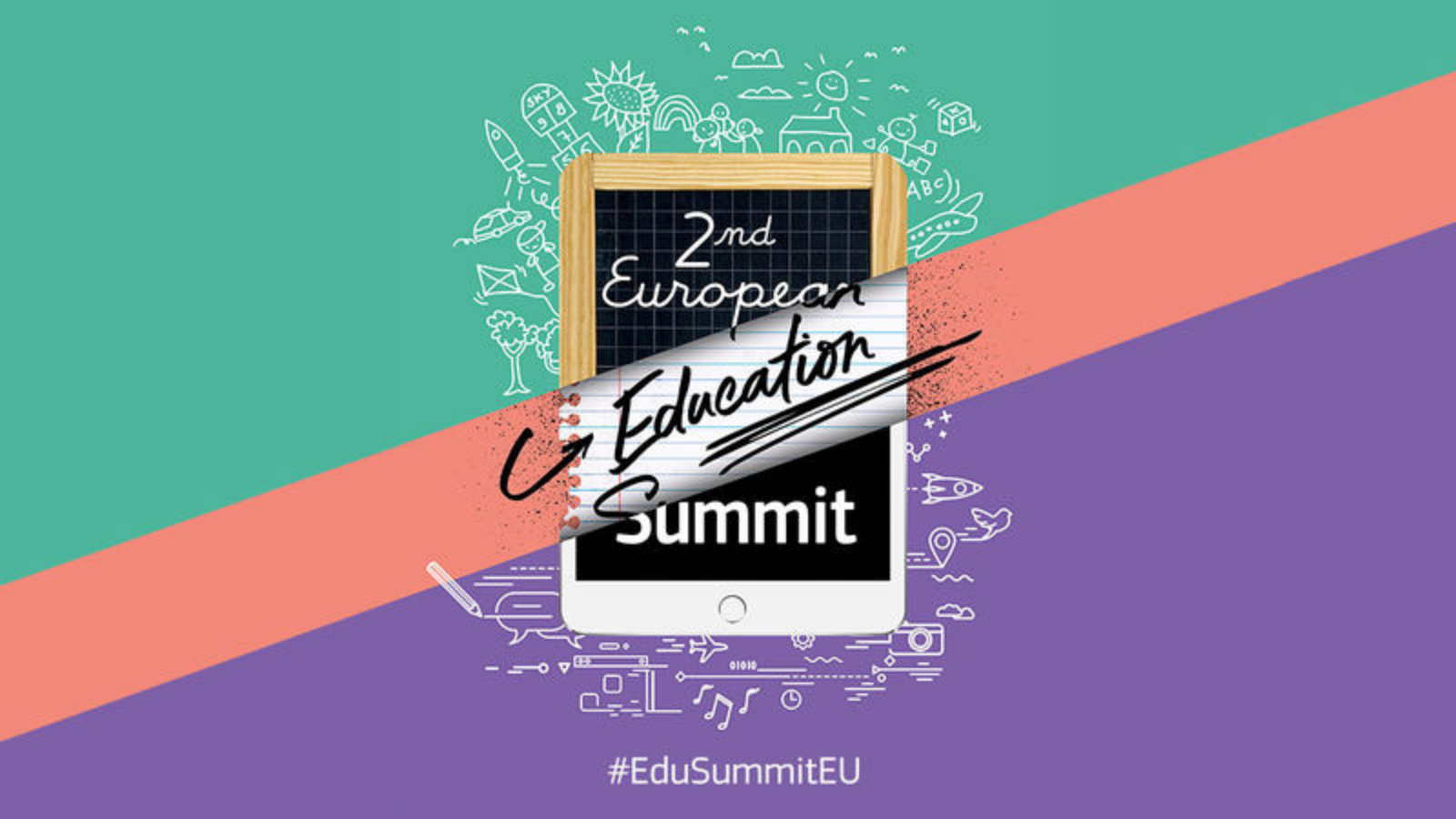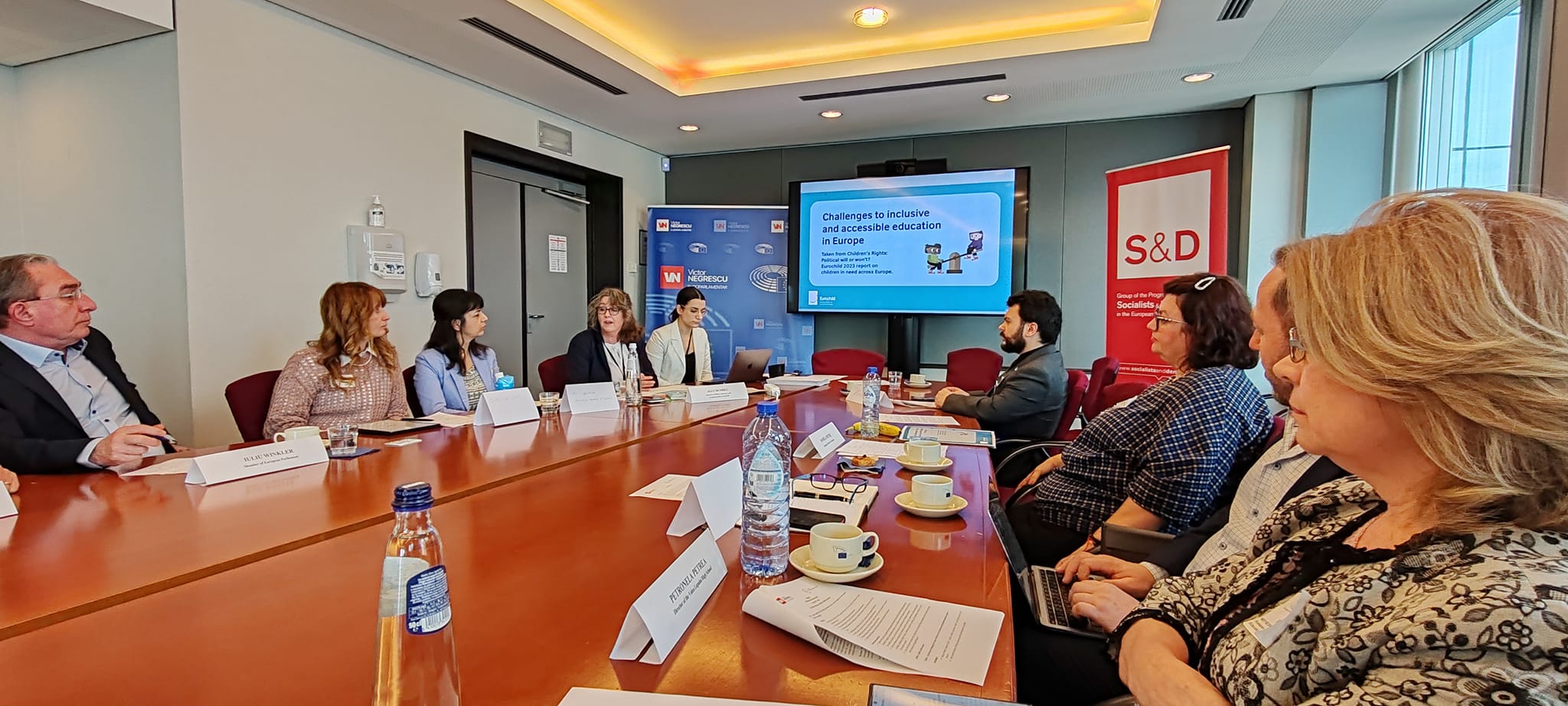Early Years Education - a Forceful Tool for Greater Social Inclusion
On 27 September 2019, Brussels hosted the second European Education Summit, bringing together 160 teachers, 19 national education ministers and hundreds of experts to discuss how education can impact active future citizens.
Yesterday, on the European Day of Languages, Tibor Navracsics, Commissioner for Education, Culture, Youth and Sport, hosted in Brussels the second European Education Summit. The Summit brought together 160 teachers, 19 national education ministers and hundreds of experts to discuss inclusion, high quality education and how to support and empower teachers to shape up active future citizens.
Global Teacher Prize finalist Christoph Schiebold said “I am part of the equation to help children to become creative decision makers, critical thinkers and emphatic and caring global citizens, & to unfold the perfection that every child has in his/her essence”.
It is exciting to see the European Commission offer spotlight to the topic of education. Education is much more than a transfer of knowledge, as Mario Monti, Senator for Life of the Italian Republic, reminded the audience at the Education Summit. ‘Teachers have a crucial role in contributing to shaping up a society where inclusion, tolerance, justice and non-discrimination prevail’, he said.
Social justice, fairness and equality are dominant themes of the proposed new Commission. Knowing that the seeds of inequality are sown in the first years of life, addressing inequalities in early years becomes essential. Eurochild is looking forward to the new European Commission strengthening education policies in support of greater social inclusion.
Social inclusion is a thematic focus of the European Commission Education and Training 2020 Working Group on Early Childhood Education and Care, which was set up last year to supporting countries in their reflections and designing policy measures in the area of early childhood education and care. Eurochild engages in this working group, composed of the European Commission and representatives from EU Member States, to exchange experiences and good practices, learn from each other and develop targeted policy guidance and technical guidance on how to implement the EU commitments in this field.
Among other things, the working group is tasked to develop a toolbox of practical solutions and measures to inspire national policy makers to implement the European Quality Framework as approved in the Council recommendation of Education Ministers in May 2019. In addition, the toolbox will describe good practice in early childhood education and care (ECEC) settings and present useful tools to inspire leaders and staff across Europe to progress towards more inclusive practice.
A case study from Ireland
The working group which met this week, explored one of the inspiring practices on inclusion from Ireland. Ireland introduced universal free preschool in 2010, but many children with disabilities could not access or participate meaningfully due to physical barriers and lack of resources or staff training. In 2016 the Department of Children and Youth Affairs established the Access and Inclusion Model (AIM), an inter-agency programme to support children with disabilities to participate fully in mainstream preschool.
AIM involves a tiered model of supports, which move from universal to targeted, with the level of support provided depending on the needs of the child in the context of the pre-school setting, not on diagnosis.
● development of an inclusive culture through roll-out of guidelines on diversity, equality and inclusion; and Universal Design Guidelines for the building and design of settings;
● information for parents and providers;
● training for practitioners, including a leadership programme to train an Inclusion Coordinator in every preschool, with a financial incentive for services that employ a qualified Inclusion Coordinator;
● a team of 80 specialists, employed nationally, to assess needs and provide advice on strategies for inclusion;
● provision of equipment, appliances, and grants for minor alterations to buildings;
● therapy supports where these are necessary for a child’s participation in the ECCE programme; and
● increased payments for providers to allow a reduction in the adult-child ratio (either through recruitment of additional staff or through reducing the number of children in a room without impacting on the provider’s income).
AIM operates within a context of market provision by private (for-profit and non-profit) providers, who are contracted to deliver universal, free preschool for 3-5 year olds.
Within two years of AIM’s introduction, the proportion of services with a child with a diagnosed disability rose from 48% to 65%. An initial year-one review found a high level of satisfaction among parents and providers. A full evaluation of AIM will be commissioned by the end of 2019.
First 5 (Ireland’s 2018-28 national strategy for babies, young children and families) commits - subject to the year-3 evaluation findings - to consider extension of AIM, e.g. to other age groups of children (under-3s or to after-school childcare) and/or to children with additional needs other than a disability. First 5 also commits to consider consolidating or aligning AIM with specialist preschool services, depending on the evaluation findings.




